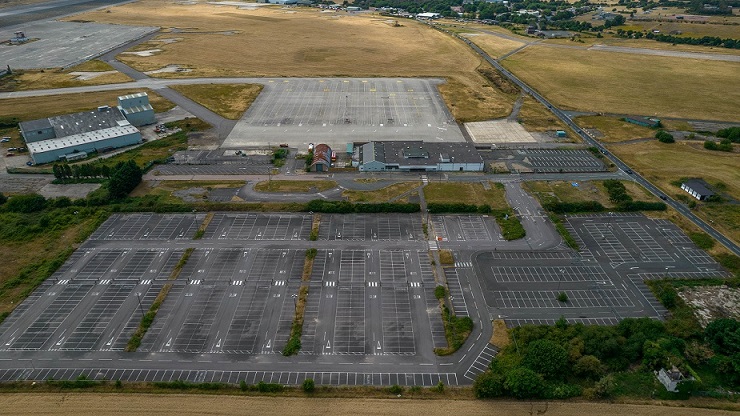Reviving Manston Airport
07 / 08 / 2023

Image source: Manston Airport
Since its closure in 2014, Manston Airport has been the forgotten jewel of the UK airfreight industry. Formerly known as the Battle of Britain airfield and utilised as an RAF base until 1999, Manston catered for UK and international commercial flights, helping to meet local demand, and contributed to regional economic development.
Then in 2015, it was transformed into an emergency lorry park to mitigate cross-Channel travel disruption.
There are now plans to reopen Manston Airport – under new ownership by River Oak Strategic Partners (RSP) – and develop it into a cargo hub. However, the airport is facing ongoing challenges with trying to get its final Development Consent Order (DCO) application approved.
Initially granted in July 2020, the application has since been rejected on two occasions and a Judicial Review hearing was held on July 4 and 5 for evaluation on whether the need for a freight hub was adequately assessed, and whether due consideration was given to the airport’s impact on the UK Government’s ability to meet net zero emissions by the 2050 deadline.
Courts are in recess during August and September, so the final decision will not be made until after this time, but for the stability of UK trade it is vital this gets approved.
Critical support for UK economy
As airfreight capacity continues to rise to pre-pandemic levels, London airports are focusing on passenger flights over freight movements. Reviving Manston airport for the transportation of freight is critical for supporting the UK economy as it will maximise international imports and exports and create further trade opportunities across the globe.
Logistics UK therefore supports this proposal – providing the potential economic benefits are delivered – as it holds the capacity for significant future growth.
RSP has recorded that more than £2bn was lost to the London and South East England economy each year, due to airfreight being diverted to Europe from lack of capacity.
Reinstating Manston Airport will address this significant issue for the sector as the company estimates that they will handle approximately 17,000 cargo flights a year with the hope of boosting regional trade and foster economic growth.
Due to its proximity to Dover, the reopening of Manston could also help to alleviate current road congestion caused by lorries carrying freight through the Channel Tunnel to European airports for onwards distribution.
In addition to meeting increased demand for air cargo, RSP also plans to train people seeking employment – including school leavers and/or people with no qualifications – to provide career opportunities for at least 2,000 jobs ranging from security to air traffic control.
This is a positive step towards plugging the ongoing skills gap across the industry. The airport is also fully committed to delivering net zero carbon emissions through the use of hydrogen, solar panels and wind turbines, which will produce urgent new skills and further employment vacancies.
The business group recognises that local residents have concerns surrounding the re-instatement of Manston Airport including noise levels for night flights and climate change impacts on the heritage of the towns and villages of East Kent.
With newer, quieter aircrafts being built that produce less CO2 emissions, the increased use of Sustainable Aviation Fuel (SAF) and Manston’s commitment to become 100% net zero by 2030, it is hoped that local resident’s concerns regarding noise and climate change impacts will be addressed long-term.
Logistics UK will continue to support RSP in its application to reopen Manston Airport and is urging the government to consider the benefits to the local area but also the ramifications a refusal will have on the country.
If Manston is not granted approval, this will have a detrimental impact on the UK’s future airfreight levels and the economy will suffer.














